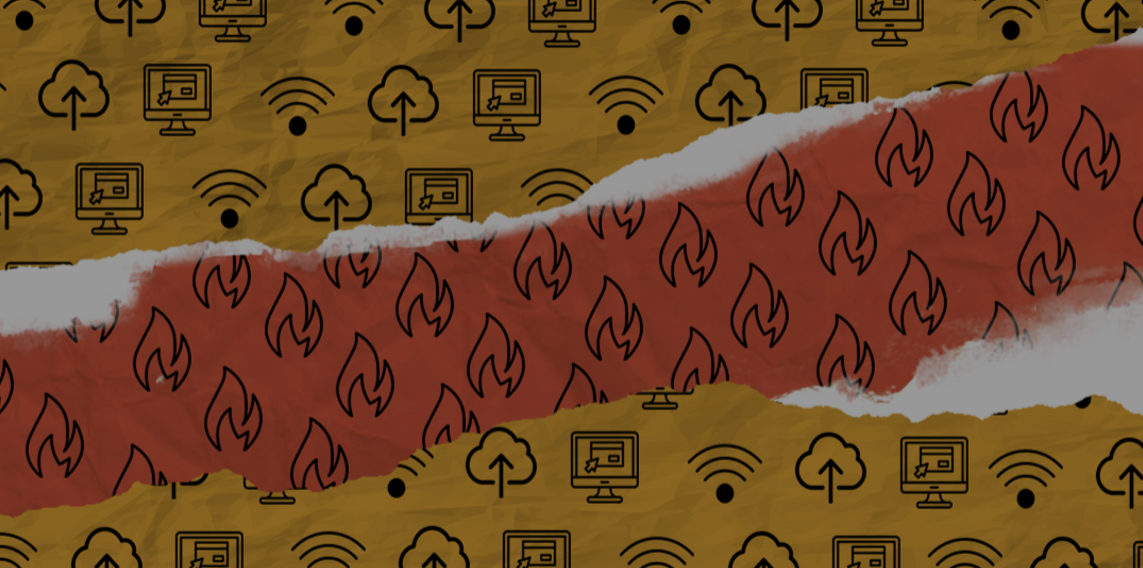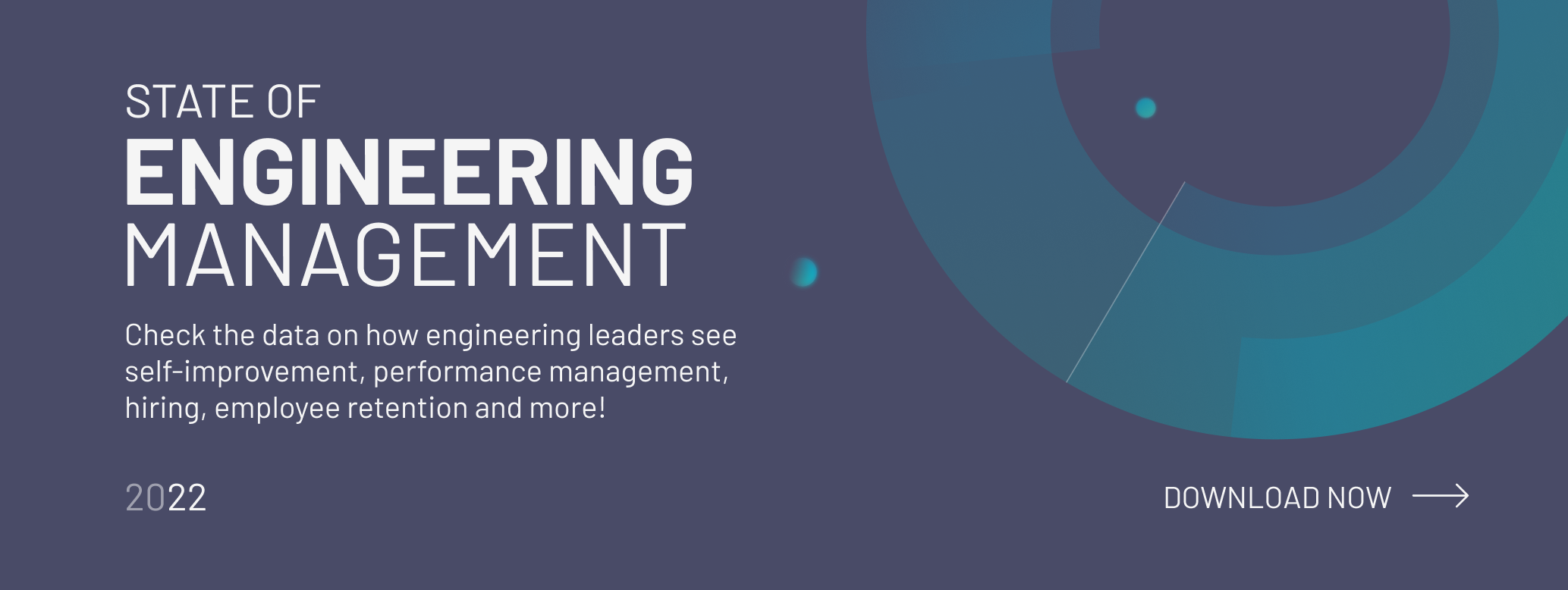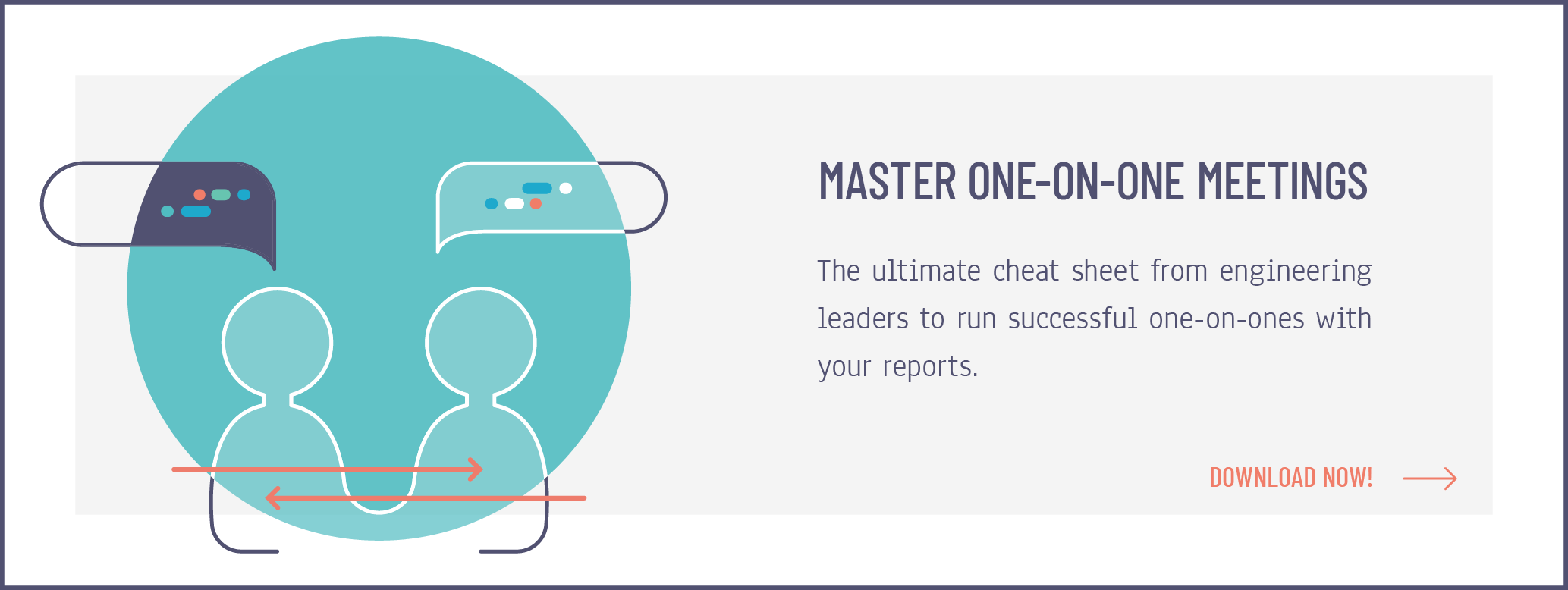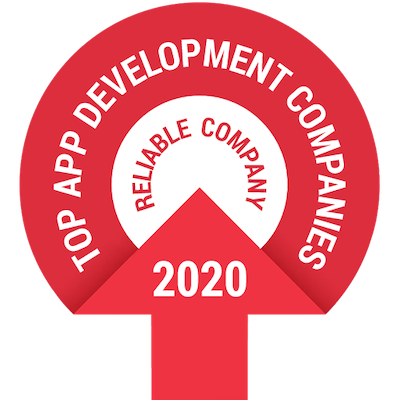
Burnout is one of the worst possible things that can happen to you in your career. It happens to a degree to just about everyone at some point, and it’s always tough to get out of a dark hole when you find yourself in one.
Developer burnout is common all over the globe, it seems the tech industry pulls it in like a magnet. It often comes with catastrophic consequences. People leave the company, and they sometimes even drop their careers, which is a problem as there aren’t enough developers as it is. Developer burnout can kill projects and even companies, so you better watch out.
We put together a list of signs you should look out for, both in yourself and in your colleagues. Then, we will take a look at the causes and try to introduce solutions you can counter with. And finally, we will look at what managers can do, and collect some of the best practices from successful real-world experts.
Let’s get down to it!
We'll cover:
Signs of developer burnout

It’s key to recognize the signs of burnout to remedy the situation as soon as possible. It’s not easy though, as any of these signs could simply signal an off day. Still, when the signs aren’t going away, and especially when they start piling up, it’s best to act immediately. Knowing them will help you spot them in yourself and in your colleagues.
Psychological signs
The first thing usually is losing the joy from your work. In software development, most people work with passion, and once it slips away, it will negatively impact performance. You lose interest and your drive, and it shows in the way you interact with your teams or in the code you write. You can tell it has happened, when positive feedback can’t cheer you up, or you don’t care about constructive criticism. It happens to everyone, and you may be there right now without even realizing it. I mean, you’re reading this for a reason, right?
It gets hard to actually start doing the work. Instead, you do all kinds of stuff, like drink extra coffee and chit-chat with coworkers. It’s not a bad thing, but once it becomes a trend, you should be aware of it. It’s less obvious from the outside when you sit at your desk and do random things online, feeling miserable about failing to get yourself to do what you are supposed to, but it’s the same thing.
Feeling irritable could be a reliable sign of burnout as well. Once you start getting impatient with your colleagues, clients or reports, you should stop and think about what may be wrong below the surface.
Feeling depressed is just as good a marker. Usually, by the time you get to depression, you’re in deep. Denial works for a long time, but you always know something is wrong. When it comes to developer burnout, depression may have many effects.
Achievements at work bring no satisfaction anymore. You’ve lost the joy of things you have always loved to do. It’s basically a general feeling of disconnection, and it could even involve apathy towards the people around you at work. It influences life outside work as well, which makes it even worse. It also reduces the quality of your time spent away from work.
When it gets bad enough, you lose hope in general. This could be for the project you’re working on, for your career goals, and for just about anything you could have hope for. It means you get pessimistic and overly focused on possible negative outcomes. It could heavily factor into feeling anxious.
Physical signs
Burnout often has physical signs as well. Some of them may remain under the radar for a long time, so you should be aware of what to watch out for.
When it comes to developer burnout, often there is a loss or increase in appetite. It changes from one person to the other, so you may lose your otherwise healthy appetite or start eating a lot of extra food to get the joy you have lost from your work.
A general feeling of fatigue is also a telltale sign of burnout. Sleeping habits may change as well, and one could flow directly from the other and make each other worse. When it gets bad enough, insomnia could kick in, and everything will go downhill even faster. Fatigue often leads to a reduced attention span as well.
Headaches are a common sign of developer burnout, and in some cases, they can go way further as well. You may experience shortness of breath, dizziness or even chest pains. The latter should only happen in extreme cases, but they’re possible.
How to prevent developer burnout, and what are the causes?

Catching the signs of developer burnout is important, but it’s even better to avoid it in the first place.
Take time off
The mentality that more work hours equals more result is often an enemy. Prolonged stress always leads to burnout eventually, so you should avoid overworking, and take some time off every few months. It will give you time to recuperate and keep you more productive in the long run. So, time away from work and your computer/phone is very useful in preventing developer burnout.
Compensate for sacrifice
Sometimes, a tight deadline can require personal sacrifices from your team or your employees. You should always make sure to properly compensate for this every time. Money for overtime doesn’t hurt, but it’s not all about money. You should make sure people get rest and provide them with the ability to work remotely, to make this period less draining.
Avoid impossible goals
When the goals seem impossible, the personal sacrifices feel even worse, as there is no relief in sight, and demanding more and more will certainly lead to developer burnout. So, you should make sure to set expectations realistically, which requires thorough project management. Also, make sure the company’s leadership supports the team, and find a solution even if the client wants to push more.
Learn more about setting goals and engineering productivity from Camille Fournier!
Keep learning
Monotony is another enemy that doesn’t need much explanation. Even if everything is going as intended, doing the same thing all the time for years can lead to developer burnout. A good way to avoid this is to make sure you learn something new and switch things up a bit. Study a new framework or language, switch to another if the task allows it, or just restructure the way you approach a regular day.
Stay healthy
Poor physical health can be a key factor leading to developer burnout. It’s a lot less obvious than the ones above, you will only really notice it from the other side. Once you start exercising regularly and eating healthy food, you’ll realize how much better you feel. Also, being in bad shape physically can intensify the effects of all the above and shorten your road to burnout.
Find your work’s meaning
Lack of meaning is an elusive idea, so it’s hard to grab by the throat. The key thing to know is that people tend not to like working for no other reason than money. It’s especially true when it comes down to more creative work, like software development. So, you should always be clear on what you’re currently working on in terms of the big picture and how it helps your company, your client, and their clients.
Best practices for managers to prevent developer burnout

Leadership and work-life balance is a big topic, but the very best practice you should always follow is to address any issue head-on.
Lead by example
It’s essential to understand that managers are supposed to be leaders, and good ones lead by example. People generally don’t like to be the first in the office to put down the keyboard and go home. Staying late can quickly become part of the culture if the manager always stays late.
If it doesn’t even come with extra pay, you could easily lose your best talent over something you may not even notice. Leading by example also translates to staying healthy, encouraging vacations and everything else.
Clearly define roles
Make sure everyone on your team knows their responsibilities and goals. It’s important to be clear on them so uncertainty doesn’t put stress on anyone over what’s expected of them, or whether things will get done.
Create a culture of recognition
Recognizing good work goes far in preventing or remedying developer burnout. It makes your reports feel appreciated and secure in their jobs. The lack of feedback on the other hand will surely speed up the developer burnout process. So, make sure to give feedback to your reports yourself. Also, give them the tools to provide feedback to each other, and encourage them to voice the positive opinions as well. [Tony Karrer, CTO, CTO Universe/Aggregage]
Communicate purpose
Lack of meaning is an enemy, so it’s the manager’s goal to make sure their reports know the reason behind the things they do. You should communicate what the purpose is behind their tasks, and how the code they write will be valuable for the company or the client. It keeps up motivation, which helps keep away a nasty case of developer burnout.
Offer professional development
Provide your team with opportunities to learn new things, or get deeper into areas they already know. It’s useful in combating monotony, as it breaks the rhythm of the daily schedule, making sure your developers don’t feel out of their depth with their tasks. Give them time and opportunity to learn, and they will repay you with long-term productivity.
Remote work and flexible scheduling
Allowing opportunities for remote work is more and more common in the software industry. It’s a great practice, as allowing some flexibility makes your employees more comfortable and feel more trusted. If possible, give your developers extra flexibility in their schedules. For example, let them work 4 x 10 hours, so they get a longer weekend and still get the job done.
Click here to learn proven time management tips for engineering managers!
Case studies: How to prevent developer burnout?
We collected some expert opinions from the industry, and outside it, on what to do once you’re in burnout mode. Let’s see the practices that came up the most. This is what successful people do in the real world:

Jordan B. Peterson
Jordan Peterson, world-renowned professor of psychology, gives the same advice in his lectures and to his clients for increased productivity. He says on average people should take off about 4 days every three months to spend away from work. Even if it seems like a sacrifice, according to Peterson, it pays off in the long run, as his clients became more productive using this strategy.
Allan Wintersieck
CEO
Devetry
"Disconnect! Everyone is different in what they enjoy, but the one constant seems to be: disconnect completely from your work for 4+ days.
It can be easy in the heat of the moment to think, "I can't possibly step away from work right now; there's too much to do," but oftentimes it's more positive in the long-term to disconnect a bit. Find a balance that works for you, and remember that your own mental and physical health always come first.
If you realize your developers are burning out, immediately talk to them about finding a balance between the business goals and their need to take some time off. Oftentimes, this looks like, "We have an important deadline in 4 days, so let's work together to make that happen, then go take a long weekend and disconnect."
Anand Dhillon
CTO
Cover
"During our recent Cover Auto launch in Texas, one of our engineers and I were literally working till 2-3 am every day for an entire month. One day––a Saturday––we just decided that we had to take a break. We took the day off and went golfing. This was an example of a day where the burnout had accumulated to the point where neither of us had the capacity to work.
Personally, I find that I'll get a combination of irritable and apathetic when I get to the point of burnout. I can definitely sense myself being less productive in meetings.
Once you burn out, it's super important to focus on your health; make sure you're exercising, eating healthy, sleeping enough and finding ways to relieve stress. I personally like meditating to relieve stress.
Also, delegating more and taking an extra day off here and there is very powerful. A long weekend can do wonders for your energy levels. If caught early, a long weekend could be sufficient to make you feel better, but if it accumulates, you might find that you need a couple of weeks to recover.
The best thing you can do for yourself is to practice self-awareness. If you can recognize when the symptoms start, you can catch it early and take action right away.
In the day-to-day, it's important to be dynamic in what you're working on based on your energy levels and what the requirements of any given task are. For example, it's better to work on something challenging when you're close to peak mental state. If you're feeling a bit tired, it might be better to focus on checking your emails."
Nooria Khan
Tech Expert
GigWorker
"Different FACTORS can lead to IT manager burnout:
1. Long hours that lack consistent and adequate opportunities for physiological rest and recovery.
2. The fast-paced, competitive environment of the tech industry creates endless management responsibilities.
3. The pressure to deliver the project deliverables on time.
How I PREVENT burnout:
1. Work with the team to restructure workloads.
2. Break a big task into smaller tasks and divide appropriately among team members.
3. Talk to my team and get help from them when necessary.
4. Take a break whenever I get a chance and go outside in open air and breathe because an indoor, technological-packed environment can decay one’s health."
Benjamin de Vera
Keep tasks of your employees varied and interesting. It is common to implement a rigid specialization process. Although this can be effective in the short-term, it is unsustainable in the long run. To avoid this rigid process, insist upon your employees spending 20% of their time on company tasks THEY deem interesting and compelling.
Mike Catania
One of the things I've found to be incredibly helpful for prying developers out of the burnout zone is having them move to co-learning tasks. If she works as a developer on the marketing side, have her work in a non-coding, non-managerial shadow for a few days.
Successful developers are persistent by nature, and I've had a hard time mandating time off or project swapping. That persistent--read: stubborn--character trait seems to take more to co-learning since there is an active element, and while that's valuable in its own way, the real benefit is a mental break, even if it's just for a few days.
Conclusion
It’s a continuous fight to keep burnout at bay, so watch for the signs in yourself and in your colleagues. The moment you realize burnout is coming, address it head-on. It won’t go away all by itself.
So, make sure you're in good health, mix up the daily routine with some more interesting tasks and activities at work and away from work, and don’t be afraid to use your vacation days whether or not you’re a millennial. Common sense, experience, industry experts and clinical psychologists are on the same page about developer burnout; they can’t all be wrong.
What You Should Do Now
👉 If you are serious about becoming a great engineering leader, you should take a deep dive into the State of Engineering Management 2022 report.
🚀 Need developers for your team or project? Hire our experienced Angular, React or Node.js developers! Click here for a FREE consultation.
About the author:
Gabor Zold is a content marketer and tech writer, focusing on software development technologies and engineering management. He has extensive knowledge about engineering management-related topics and has been doing interviews with accomplished tech leaders for years. He is the audio wizard of the Level-up Engineering podcast.












